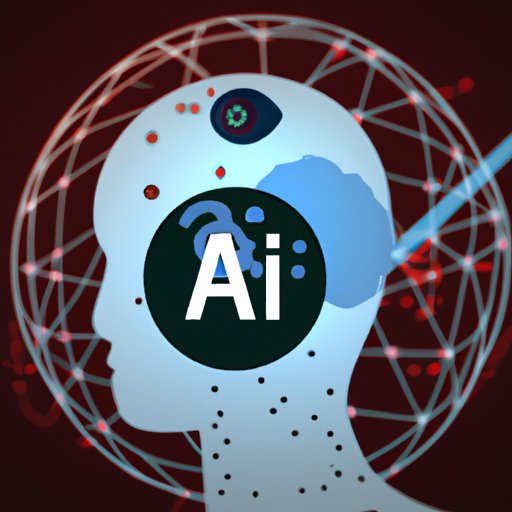Introduction
Artificial intelligence (AI) is a term used to describe computer systems that can learn, reason, and act in ways similar to humans. It has become an increasingly popular topic in recent years, with many experts predicting that AI could revolutionize society in the near future. But as with any new technology, there are concerns about how it might be used and the potential dangers it could pose. This article explores some of those potential dangers, looking at the risks posed by AI in terms of jobs, autonomous weapons systems, privacy, security, and ethical considerations.
Examining the Potential Dangers of Artificial Intelligence
One of the most commonly discussed risks associated with AI is its potential impact on employment. Many experts believe that AI could lead to widespread job loss, particularly in industries where automation is already being used. As AI continues to become more advanced and capable of performing complex tasks, it is likely to lead to significant disruption in the way people work.
A recent study conducted by researchers at Oxford University found that 47% of US jobs could be at risk due to automation over the next 20 years. While this may not necessarily be caused by AI specifically, it does illustrate the potential impact automation could have on the workforce. Moreover, it highlights the need for governments to start preparing now for the inevitable changes that will come.
Another potential danger posed by AI is its use in autonomous weapons systems. Autonomous weapons systems are weapons that can operate without direct human control, such as drones or robotic vehicles. These weapons raise serious ethical questions, as they could potentially cause large-scale destruction without any direct input from humans. Furthermore, these weapons could be used to target civilians or vulnerable populations, which would be a clear violation of international law.
The United Nations recently convened a meeting to discuss the implications of autonomous weapons systems, and many countries have called for an international ban on their use. However, it remains to be seen whether any meaningful action will be taken, as the development of these weapons continues to advance rapidly.

Exploring the Ethical Concerns of AI
In addition to the potential risks posed by AI in terms of jobs and autonomous weapons systems, there are also ethical concerns that must be considered. One of the biggest issues is the impact AI could have on privacy and security. With the increasing use of AI in everyday life, there is a risk that data collected by these systems could be used for malicious purposes or shared without the user’s consent.
This has led to calls for greater regulation of AI, including rules around data collection and storage. In particular, the European Union’s General Data Protection Regulation (GDPR) has been cited as a potential model for regulating AI. The GDPR places strict limits on how companies can collect, store, and use personal data, and provides individuals with more control over their data.
However, while protecting privacy is important, there are also potential benefits to be gained from AI. AI systems can be used to automate mundane tasks, freeing up time for more creative endeavors. They can also be used to improve healthcare, transportation, and other services, making them more efficient and cost-effective. As such, it is important to consider both the risks and benefits of AI when discussing the ethical implications of its use.

Discussing the Challenges of Regulating AI
While the potential dangers of AI are clear, the challenge of regulating it effectively is less straightforward. AI is a rapidly evolving field, and there is no single “one size fits all” approach to regulating it. Different countries have different approaches to regulating AI, with some taking a more cautious approach than others.
For example, the European Union has adopted a number of regulations aimed at protecting citizens from the potential harms of AI. These include the GDPR and the Artificial Intelligence Act, both of which are designed to protect individual rights and ensure transparency in AI-based decision-making processes. In contrast, the United States has yet to pass any major legislation governing the use of AI, though some states, such as California, have started to take steps in this direction.
Ultimately, effective regulation of AI will require international cooperation, as well as the development of clear guidelines and standards that can be applied across different jurisdictions. This is a difficult task, but one that is essential if we are to ensure that AI is used safely and responsibly.
Conclusion
In conclusion, AI poses a number of potential dangers, from the threat of job loss to the ethical implications of autonomous weapons systems. It is also clear that effective regulation of AI is essential if we are to ensure that it is used safely and responsibly. Governments and businesses must work together to ensure that the potential benefits of AI are realized without compromising the safety and security of individuals. By doing so, we can ensure that AI is used for the benefit of humanity, rather than to our detriment.
(Note: Is this article not meeting your expectations? Do you have knowledge or insights to share? Unlock new opportunities and expand your reach by joining our authors team. Click Registration to join us and share your expertise with our readers.)
